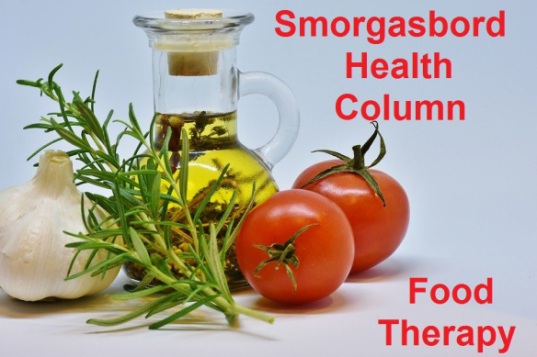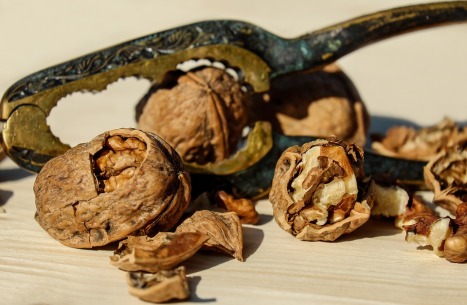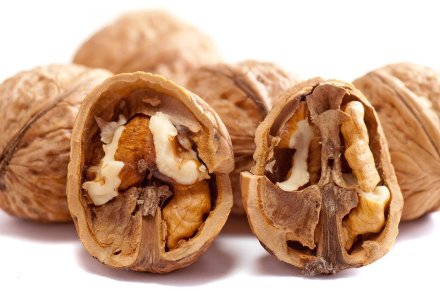
As a follow on from the recent series on the Weekly Grocery Shopping List of foods that contain the nutrients the body needs that contain the nutrients the body needs I am going to repeat my series from 2017 on the health benefits of some of our most common foods.
Food therapy is a broad term for the benefits to the body of a healthy, varied and nutritional diet of fresh foods.
Most of us walk through the fresh produce departments of our supermarkets without really paying much attention to the individual fruits and vegetables. This is a great pity because the vast majority of these foods have been cultivated for thousands of years, not only for their nutritional value but also for their medicinal properties. If you eat a healthy diet you are effectively practicing preventative medicine. A robust immune system, not only attacks external opportunistic pathogens, but also works to prevent rogue cells in the body from developing into serious disease.
NOTE – If you are on any prescribed medication do not take yourself off it without consultation with your doctor. If you follow a healthy eating programme and lose weight and are exercising you may not need the same dose and with your doctor’s agreement you may be able to reduce or come off the medication all together.

Walnuts are all they are cracked up to be!
Evidence of walnut consumption was dug up, literally, in Southwest France during excavation on Neolithic archaeological sites dating back over 8,000 years. It appears that there were walnut groves in the hanging gardens of Babylon and in Greek mythology the walnut was highly revered and temples built to honour it.
The Latin name for the tree, Juglans Regia, comes from the Roman civilisation where it was called Jove Glans or the Royal nut of Jove. The nut and the oil have been used since ancient times, both as a food and for dyeing wool and are now worldwide commodities.
Walnuts are very versatile – chopped up on savoury or sweet dishes or used as a snack between meals they give you a very healthy nutritional punch. Omega 3 fatty acids are a special type of protective fat, rather than harmful fat, and it is something that the body does not produce itself. – Walnuts contain a plant based form called alpha-linolenic acid, 14 half walnuts provides you with over 90% of your daily requirement and if you look at the health reasons for taking Omega 3 you will understand how very important this small handful of nuts is.
Omega 3 is known to help protect us from cardiovascular problems, improve brain function, help with inflammatory diseases such as asthma and arthritis and in skin diseases such as eczema and psoriasis. Walnuts contain it in a different form to oily fish also contain an antioxidant called ellagic acid, which boosts the immune system and protects against cancer.

What is the most important benefit of walnuts?
For anyone who suffers from elevated LDL (low density lipoprotein that when oxidised forms blockages in the arteries) levels in their bloodstream, eating walnuts is definitely helpful. It is one of those rare occasions when claims that certain foods can help a condition are permissible. In the case of walnuts the FDA in America were sufficiently convinced by scientific research into the benefits of the nuts in lowering LDL cholesterol that they allowed the health claim to be advertised on products containing the nut or the oil. This is down to the excellent levels of Omega 3 in the nuts, which contain the highest amount in 1 oz. compared to other nuts (2.5 g of Omega 3 against 0.5 g in other nuts)
Omega 3 helps prevent erratic heart rhythms and because the LDL, which causes platelets to clot, is lowered the risk of strokes is also reduced.
Omega 3 works on our brain function because our brains are actually 60% structural fat and needs to be supported in our diet by specific Omega 3 fats like those in walnuts, flax seeds and cold water fish like salmon. Part of the reason is that the cell membranes that everything has to pass through are mainly fat. Omega 3 is very flexible, and fluid, and can pass easily through the cell membrane taking other nutrients with it at the same time. This increases the cell uptake of nutrients making them more effective.
Studies of Omega 3 deficiency have highlighted some worrying trends. One of the most concerning is the evidence of depression in children. It has also been linked to hyperactivity, behavioural problems such as tantrums and learning difficulties. This deficiency is on the increase particularly in the United States, and the UK is not far behind.
Other beneficial nutrients in walnuts.
There are several other good reasons to include walnuts in your daily diet as they include the following nutrients:
Manganese; Needed for healthy skin, bone and cartilage formation as well as glucose tolerance. Also forms part of the antioxidant superoxide dismutase, which helps prevent free radical damage.
Copper is an essential trace element needed to absorb and utilise Iron. It is needed to make ATP and is also to synthesise some hormones and blood cells. Collagen needs copper, as does the enzyme tyrosinase, which plays a role in the production of skin pigment. Too much copper in the diet can depress levels of zinc and effect wound healing.
Vitamin B6, Pyridoxine; The Master Vitamin for processing Amino Acids – the building blocks of all proteins and some hormones. It assists in the formation of several neurotransmitters and can therefore help regulate mood. It has been shown to help lower Homocysteine levels in the blood linked to heart disease, osteoporosis and Alzheimer’s disease. It produces Haemoglobin the Oxygen carrying pigment in the blood. It helps the release of carbohydrates stored in the liver and muscles for energy. It is involved in the production of antibodies and it helps balance female hormones. It is needed for the production of serotonin along with tryptophan and B12.
Tryptophan is an essential amino acid that is the lowest in terms of levels needed by the body. It is responsible for normal sleep patterns. Vitamin B6 is needed for the formation of tryptophan, which affects serotonin levels. These serotonin levels influence sleep and mood.

During the day, snack on 14 half walnuts that is about 190 calories or indulge by including in these fabulous recipes from Carol Taylor: Walnut Recipes
©Sally Cronin Just Food for Health 1998 – 2020

I am a qualified nutritional therapist with twenty-two years experience working with clients in Ireland and the UK as well as being a health consultant on radio in Spain. Although I write a lot of fiction, I actually wrote my first two books on health, the first one, Size Matters, a weight loss programme 20 years ago, based on my own weight loss of 154lbs. My first clinic was in Ireland, the Cronin Diet Advisory Centre and my second book, Just Food for Health was written as my client’s workbook. Since then I have written a men’s health manual, and anti-aging programme, articles for magazines and posts here on Smorgasbord.
If you would like to browse my health books and fiction you can find them here: My books and reviews 2020
Thank you for dropping in today and your feedback and questions are very welcome.. thanks Sally.

Pingback: CarolCooks2…weekly roundup 14th June-20th June 2020…Climate Change, Recipes, Whimsy, Chocolate Fudge… | Retired? No one told me!
Pingback: Smorgasbord Blog Magazine Weekly Round Up – 14th -20th June 2020 – Outsmarting the Crows, D.G. Kaye and Relationships, USA 1985, Books, Authors, Music and Funnies. | Smorgasbord Blog Magazine
Never thought walnuts are so important. Thank you for another great sequel in staying healthier these times. Michael
LikeLiked by 1 person
Pleasure Michael and good to have around for a snack during the day…xx
LikeLiked by 1 person
I didn’t believe it at the beginning. But without such snacks, one quickly access high-calorie things.
LikeLiked by 1 person
Very true… there are a lot worse things than a small handful of walnuts..xx
LikeLiked by 1 person
Indeed, i know them all. 😉
LikeLiked by 1 person
Yum on the walnuts. I like to throw some in cereal. ❤
LikeLiked by 1 person
Brilliant… xxx♥
LikeLiked by 1 person
If I may echo Mary Smith’s comments, how satisfying to find something I love on the ‘good to eat in moderation’ list. I know that pretty much everything is good in moderation but you don’t get much chocolate in that category…
LikeLiked by 1 person
Walnuts are wonderful! They also zap very well for smoothies.
LikeLiked by 1 person
and cake….definitely a staple to have around all the time..x
LikeLike
I love grabbing a handful of Walnuts with some apple slices for a great pick-me-up snack! Thanks for sharing, Sally!
LikeLiked by 1 person
perfect for on the go too…hugsx
LikeLike
Love walnuts – makes me so happy to know something I like is actually good for me! In the granola recipe I use I exchanged hazelnuts for walnuts as I prefer then – and they are easier on my teeth than hazelnuts.
LikeLiked by 3 people
I know where you are coming from Mary with hazelnuts.. they are definitely for the squirrels when whole.. don’t mind so much when chopped up and put in chocolate…xx
LikeLiked by 2 people
Anything put in chocolate…
LikeLiked by 2 people
I love walnuts and have been eating them ever since I was diagnosed with high blood pressure a few years back. I add them to my oatmeal in the morning for a good start to my day. Some great information here.
LikeLiked by 1 person
Wonderful Darlene… they are very tasty too.. I buy an organic walnut butter from time to time which lasts ages but tastes great on toast. xx
LikeLiked by 1 person
I haven´t seen that here but will keep an eye out for it. Sounds like something I would love. xo
LikeLiked by 1 person
Thanks for this post, Sally. Great information.
LikeLiked by 1 person
Thanks Robbie… do love a few nuts..xx
LikeLiked by 1 person
I like nuts too, Sally. I can’t eat them right now because I have braces on my teeth and nuts are a no no.
LikeLiked by 1 person
They certainly are Robbie..perhaps if you can get hold of some, organic nut butters are very nice on toast. I have made my own and it is delicious..https://minimalistbaker.com/how-to-make-nut-butter/
LikeLiked by 1 person
Thanks for the link, Sally
LikeLiked by 1 person
Pressed this its live now Hugs xx
LikeLiked by 1 person
Thanks Carol..hugsxx
LikeLike
Pingback: Smorgasbord Health Column – Food Therapy – Walnuts – Not just any nut… by Sally Cronin | Retired? No one told me!
Thank you for sharing my walnut recipes, Sally…I love most nuts but walnuts I always have to hand as they are my favourite and as you rightly tell us a very healthy nut as well…Perfect!
LikeLiked by 1 person
Thanks Carol… and hope that your recipes are well used…hugsx
LikeLike
And, they are delicious too and can be added to lots of different dishes.
LikeLiked by 2 people
I agree Bob I love them cooked in a little maple syrup as a pancake topping 🙂
LikeLiked by 3 people
I include both walnuts and pecans in my oatmeal mix at breakfast. They add a nice crunch to the soft grains.
LikeLiked by 2 people
sounds lovely Bob…very healthy 🙂
LikeLiked by 2 people
Sounds perfect Bob..
LikeLiked by 1 person
Thats a wonderful idea.Thank you for this too, Carol!
LikeLiked by 2 people
My pleasure, Michael 😊
LikeLiked by 2 people
They are very versatile…savoury and sweet.. and great snacks to carry around.
LikeLiked by 1 person